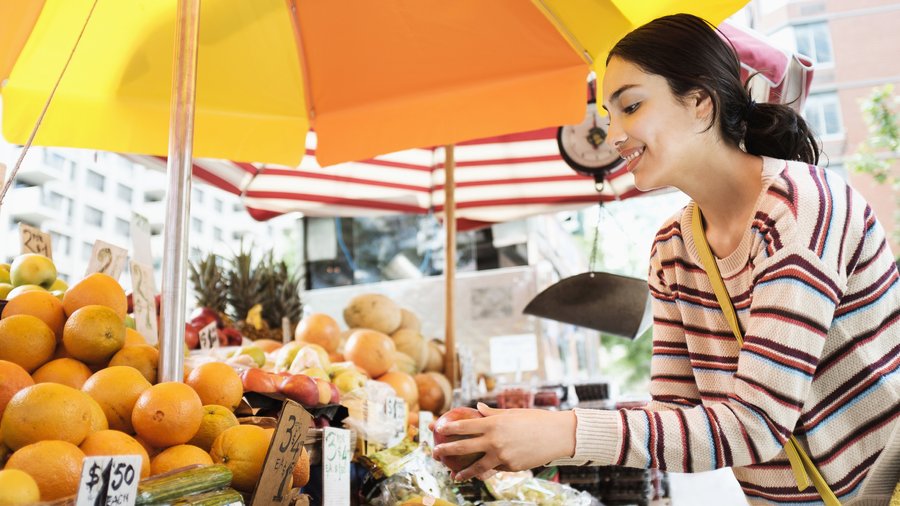Deeming 2018 the year of the “sustainable shopper,” Nielsen predicts the sustainability market will reach $150 billion by 2021.
Almost half of U.S. shoppers say they’ll change their consumption habits to benefit the environment, the marketing research firm found. Consumers are looking at products with greater scrutiny and prioritize those that are “healthy for me and healthy for the world.”
Shoppers spent $128.5 billion on fast-moving consumer goods products — items like food, toiletries and other consumables — in 2018, Nielsen reports. Sustainable product sales have grown 20 percent since 2014. At the same time, conventional product sales have dropped.
Products that are organic, clean and sustainable led the growth in the sustainability category, per Nielsen. Sustainable products currently make up 22 percent of the total store, and Nielsen expects it’ll be 25 percent by 2021.
When it comes to sustainable food purchasing, there’s a generation gap. About 75 percent of Millennials are altering their buying habits with the environment in mind, compared to 34 percent of Baby Boomers, Nielsen notes.
Additionally, Millennials report a greater willingness to pay more for products with ingredients that are sustainable, environmentally friendly, organic or natural, or socially responsible products, Nielsen found.
Baby Boomers, on the other hand, show more brand loyalty and say they have a harder time finding environmentally friendly products when shopping.
“The generational divide in sustainability is fueled by technology. We’ve found that sustainable shoppers in the U.S. are 67 percent more likely to be digitally engaged, which means they are used to having the products and knowledge they want right at their fingertips,” Sarah Schmansky, vice president in growth and strategy at Nielsen, said in a Nielsen article.
As consumers shift toward sustainable products, websites have been created to educate shoppers and provide transparency on the food production process. According to Forbes, a 2017 study showed just 39 percent of consumers know what sustainable means when it comes food products.
Among more than 60 countries evaluated on food loss and waste, sustainable agriculture and nutritional challenges, the U.S. ranks 26th in a global food sustainability index, Food Dive reports.
Nielsen has reported that sales growth of sustainable chocolate and coffee has outpaced that of overall categories, and consumers are spending more on these products, per Food Navigator.
And, the trend extends beyond what consumers buy to cook at home. The National Restaurant Association says diners will be looking for sustainability when they eat out, too.
The industry group surveyed 700 chefs for 2019’s hottest trends and found they include natural ingredients and clean menus, reducing food waste, and patronizing restaurants that protect the environment and conserve water and energy. See the association's full list here.


